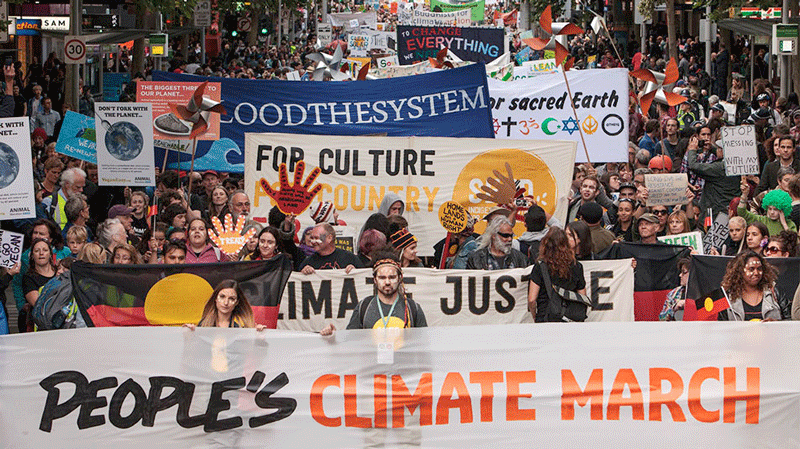A Cultural Account of Ecological Democracy
Marit Hammond presenting paper at major international workshop on Ecological Democracy
University of Sydney, 20 February 2017
CUSP co-investigator Marit Hammond to present her paper A Cultural Account of Ecological Democracy at a major international Democracy workshop, co-sponsored by the University of Sydney, the University of Canberra and Stockholm University, 20-21 February 2017. The two day event Ecological Democracy: always greener on the other side? aims to explore the tensions and synergies between democracy and sustainability on local, national and global levels; and will contribute to the work of the Task Force on the Conceptual Foundations of Earth System Governance, coordinated by the Earth System Governance Project.
For detailed information about the workshop, please visit the Sydney Environment Institute website.
ABSTRACT
In the debate around ecological democracy, a pivotal point of contention has long been the question why democracy should actually be expected, as some claim, to deliver (more) ecological outcomes. This point is empirical as well as conceptual: It is difficult to conceive why voters would support any policies that – as is often (perceived to be) the case with environmental legislation – would leave them worse off; whilst democracy conceptually must remain open to all possible outcomes rather than being tied to any particular agenda ex ante. Yet both empirically and conceptually, the nature and extent of this key puzzle has always hinged on the particular definitions used. This paper re-considers the link between democracy and ecological sustainability from a cultural angle: I argue that conceiving of both sustainability and democratisation as essentially cultural transformations resolves the puzzle and thus makes a renewed case for ecological democracy.
On the one hand, if sustainability must ultimately include societies’ ability to voluntarily – i.e. with popular support – render themselves ‘worse off’ in conventional material terms, it hinges on a fundamental change in perception of what prosperity means to people; and it is cultural norms and symbols that give such perceptions genuine meaning. On the other hand, if the ecological significance of democracy is its unique openness to precisely the critical interrogations and inclusive dialogue that create such public reflection, it must go beyond an operationalisation in narrow institutional terms, resting instead in the nature and scope of a critical public discourse; yet democratisation in this sense can only evolve as an identity-driven, bottom-up development of a matching political culture.
The realm of culture, as the sphere in society where ‘meaning-making’ and identity formation take place, is then central to both the sustainability transformation and the process of democratisation it rests on. Only as essentially cultural processes – the creation of new meanings of sustainable prosperity in people’s everyday lives, and a culturally rather than institutionally based push for democratisation – can these transformations be deep-seated rather than superficial, and thus self-perpetuating rather than merely enforced.
This perspective thus suggests a new conceptual link between sustainability and democracy: the need for an open- ended, critical public reflection on the society’s condition and possible futures that inheres in both. Whilst an ecological democracy, or democratic form of sustainability, can then still not be guaranteed to emerge, its conceptualisation in these terms offers new starting points for a democratic sustainability politics of a less rigidly defined and hence no longer contradictory type. Conceived of in cultural terms, ecological democracy can resolve its key underlying puzzle by highlighting the nature of sustainability as an ongoing process of nothing other than societal meaning-making; whilst thereby conceptually tying it to a definition of democracy that substitutes the rightly criticised rigid forms of the past for new systemically based, genuinely emancipatory approaches.

